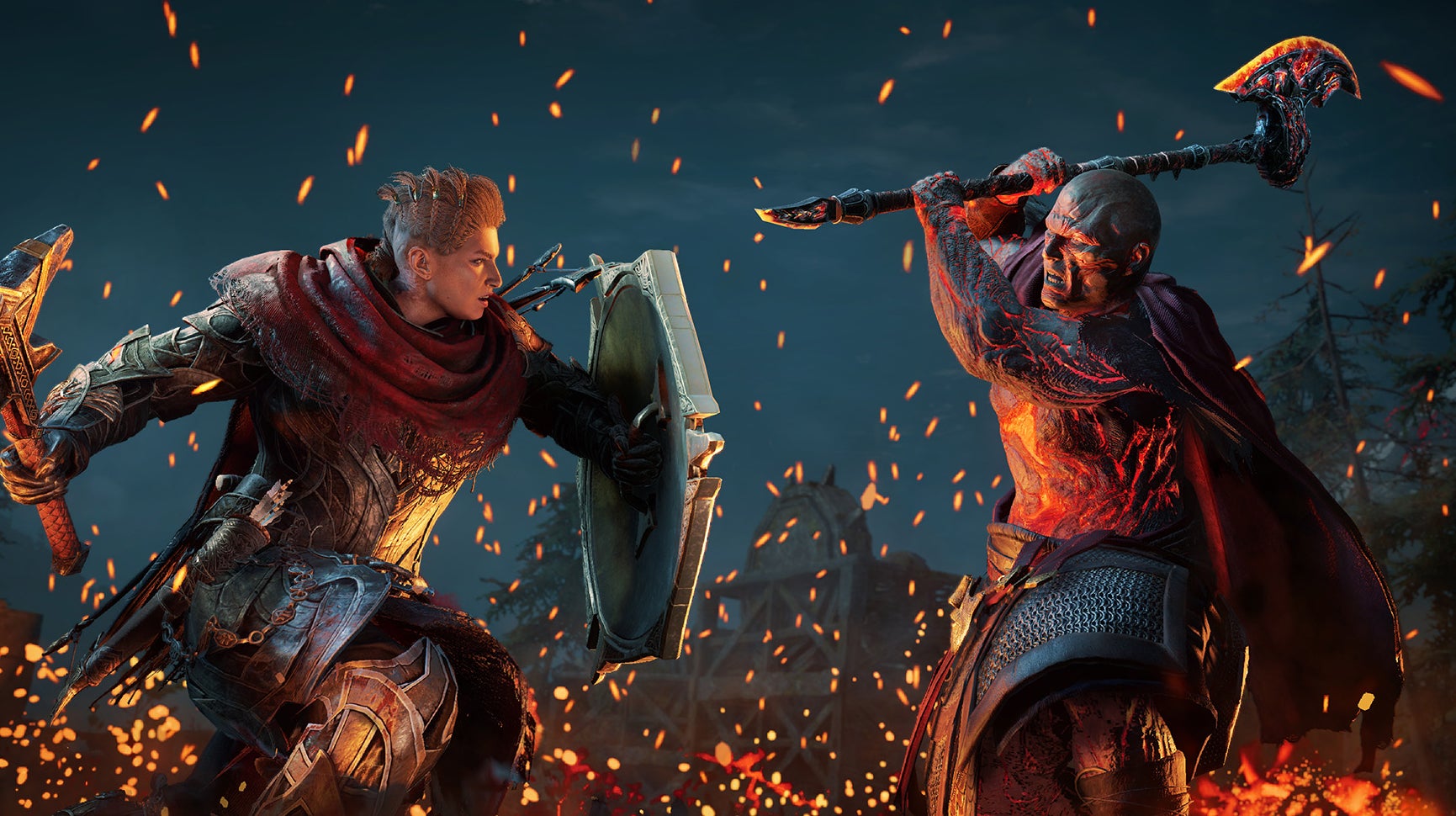For more than a decade, Ubisoft Sofia has busied itself behind the scenes, building bits and pieces of various Ubisoft open worlds. The 250-person team from Bulgaria worked on the Curse of the Pharaohs expansion for Assassin’s Creed Origins, and made several areas of the main Assassin’s Creed Valhalla campaign (Wessex and Jotunheim).
Its most prominent project to date was Assassin’s Creed Rogue, the oft-overlooked ship-based sequel to Black Flag which remixed the series’ popular pirate entry in various ways. And there’s a similar feel here to Dawn of Ragnarök, which remixes Valhalla’s gameplay and adds a couple of fresh flavours to the mix.
For the uninitiated, Dawn of Ragnarök is due in March as part of Valhalla’s second year of post-launch content, designed as a meaty mythological expansion weighing in at around 40 hours. As its name suggests, it focuses on the Odin part of Valhalla’s story and is set before the Viking god endgame (as for how that might relate to Valhalla… we’ll keep spoilers here to a minimum). Still, things are certainly cooking up a notch as the expansion kicks off, with the fiery realm of Muspelheim invading the peaceful dwarven home of Svartalfheim, which is where the expansion is set. (Expect a brief appearance from Viking Eivor to set things up and react to its revelations, but otherwise this is very much Odin’s story.)
A 20-minute demo which Eurogamer saw last week showed how Dawn of Ragnarök rips free from some of Valhalla’s Viking shackles, and goes to town with powers more befitting a Norse god – all while keeping gameplay tactical. The expansion’s systems and gameplay revolve around a new two-power loadout system, with abilities scooped up from fallen enemies and swapped out at will as you tackle different situations.
This system is called the Hugr-rip, as it literally pulls the abilities of foes from their bodies. (Hugr is used here as a rough equivalence for the Norse concept of a soul.) So, for example, there’s the Power of Muspelheim, which you can rip from fallen, fiery Muspel enemies. This makes Odin immune to lava and fire, and means he can also pass as a Muspel via social stealth, making it easy to get out of combat. (A very good thing, as Valhalla’s combat could often drag on.)
